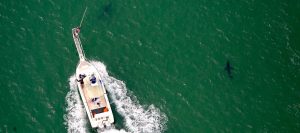Search results for: cheap%20airline%20ticket%20atlanta%20to%20columbus%20ohio%20november%2018%20phone%20number%201-800-299-7264
NOAA Live! Webinars
NOAA Live! Webinars • Wednesdays at 4 pm ET • Tuesdays at 3 pm ET – Alaska Series Features • Different NOAA expert and topic with each webinar • Moderated Q&A webinars with the scientists • Geared toward Grades 2-8 • Archive of past webinars with English captions and Spanish subtitles • Why do we…
Read MoreCOAST-old
Lesson Plans and Classroom Visits Coasts, Oceans, and Stewardship Program (COAST) This program is a collaboration between the NOAA Northeast Fisheries Science Center and Woods Hole Sea Grant. Woods Hole Sea Grant (WHSG) and the Northeast Fisheries Science Center (NEFSC) in Woods Hole, MA developed a program to create educational materials relating to key marine…
Read MoreResources for Educators & Students
Resources for Educators and Students Adaptations and Climate Change Expand How Whales Change the Climate: Video from Sustainable Human showing whales’ role in the ecosystem and climate. Port Townsend Marine Science Center- Orca Bone Atlas: This is a great resource that shows an Orca skeleton and allows you to see 3-D views of various parts of the…
Read MoreStrategic Plan
Strategic Plans 2024-2027 Strategic Plan » Download the plan 2018-2023 Strategic Plan » Download the plan Strategic Planning Process 2020 Stakeholder Survey Results 2014 – 2017 Strategic Plan »Download the plan
Read MoreSeptember 2019 Newsletter
Coastal Impacts Woods Hole Sea Grant Newsletter September 2019 SEPTEMBER 2019 CONTENTS How Do Sharks Respond to Internal Waves in the Ocean? Inspiring Girls in Science Knauss Profile: Amalia Aruda Almada Coastal Conference Series Spotlights Nantucket Sea Grant Participates in First Northeast Water Quality Monitoring Blitz Upcoming Workshop for Educators Knauss Fellowship Opportunity Now Open!…
Read MoreKnauss Fellows
Knauss Fellowship The NOAA John A. Knauss Fellowship provides unique professional experiences for graduate students interested in national ocean policy. Fellows selected for this prestigious program spend a year in Washington, D.C., working in Congress or the Executive Branch on critical marine policy and resource management issues. Woods Hole Sea Grant may submit up to…
Read MoreShark Research: The Rewilding of Cape Cod
A fatal shark attack in Wellfleet on Cape Cod in 2018 has heightened the focus on protecting beachgoers from sharks. While the means of doing that is a subject of intense debate, many proposed actions involved new technologies and the need for increased awareness of sharks in the environment. Three new research projects funded by…
Read More2016-2018 Projects
Nitrogen pollution and recovery from nitrogen pollution in a seagrass-dominated estuary: A whole ecosystem experiment Robert Howarth and Roxanne Marino, Cornell University Hydraulic jumps at an ecological hotspot Jesús Pineda, Karl Helfrich, Victoria Starczak and Annette Govindarajan, Woods Hole Oceanographic Institution Is the recent decreased atmospheric nitrogen deposition improving water and vegetation quality in Waquoit…
Read MoreMarine Life
Marine Life Healthy marine life is a source of medicine, food, and oxygen which in turn supports human health. The ocean is diverse, filled with unique organisms ranging from tiny microorganisms to the largest living animals on the planet. These living communities and the non-living factors they come in daily contact with such as salinity,…
Read MoreRiver Herring
River Herring Over the past 300 years, what had been a bountiful harvest of river herring declined for many reasons including dam construction and poor water quality. In the late 20th century, herring populations sharply dropped to as little as one percent of their historic size. Woods Hole Sea Grant is working in partnership with…
Read More
